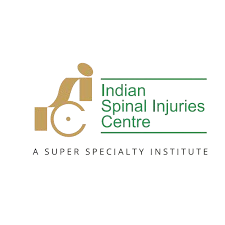- +91 782-7080-348
- contact@neemtreehealthcare.com
- A290 2nd Floor, Defence Colony ND-110024
- +91 782-7080-348
- contact@neemtreehealthcare.com
- A290 2nd Floor, Defence Colony ND-110024
Latest post
Post Categories
- No categories
NEEMTREE HEALTHCARE
Precision Meets Expertise
Robotic Total Knee Replacement With Our
Expert Surgeons At Fortis Hospital, Vasant Kunj

Free Upcoming Camp
Vinay Vishal Hospital- Roorkee
Date & Timings
11 To 02 PM- 01-March-2026
15+
Centres in 7 States/UTs
50+
Surgeons
15,000+
Joint Replacements
70,000+
Touched Lives
Freedom From Joints Pain
Physio Cafe - Physiotherapy Centre
Powered by Neemtree Healthcare (Delhi)
A venture of Dr. Pankaj Bajaj

WHO WE ARE
Precision Meets Expertise
Enhancing Your Life Through Superior Health Care.
Neemtree offers a comprehensive solution for all orthopedic issues, uniting expert orthopedic doctors and surgeons from across India to collaboratively devise the best procedures and treatments for complex cases. Led by the esteemed Dr. Pankaj Bajaj, Neemtree operates dedicated centers in various renowned hospitals nationwide.
Neemtree is committed to revolutionizing orthopedic care through the free exchange of insights among seasoned professionals. It adheres to strict quality standards and strives to provide top-notch modalities in the following specialties
Robotic Knee Replacement
- Our compassionate team consists of highly dedicated and skilled experts.
- Our doctors possess years of clinical excellence and extensive experience.
- We provide orthopedic procedures supported by the best-in-class modalities
Our Specialities
The Best Orthopedic Practice Care!
Why Neemtree?
Neemtree is dedicated to offering a complete gamut of best in class orthopedic services and modalities,
ranging from diagnostic to surgical and therapeutic, with easy accessibility and round the clock availability.

50+ Specialist Onbaord

40+ Years of Experience

App Available

24X7 Medical Assistance

Free Pick & Drop

Major PSUs & TPA

Major Govt Panels Accepted

Post Surgical Rehabilitation

Post Discharge Home Care

Transparency

Hassle Free TPA/Panel Desk

Medical Visa Assistance
Get Involve
Modern & Advanced Technology for You & Your family Health Care
Second Opinion Matters
Talk to our expert surgeons now
70K +
TOUCHED LIVES
50+
SPECIALIST SURGEONS
15K+
JOINTS REPLACEMENT
15+
CENTRES IN 7 STATES
Meet The Happy Patient
OUR EXPERTS
Meet our Experienced Doctors







Testimonials
Patient Experience
What patience say about us.
It has been eight weeks since my total knee replacement and now I realized just how much I was missing. Having it done has made such a difference to my life. For a start my leg is now straight and my knees actually touch! I have started walking . The most thrilling part is that I am running and going on hiking with my friends again.
Our Partner Hospitals












FAQs
Hip replacement surgery, also known as total hip arthroplasty, is needed when the hip joint has been damaged due to a variety of conditions, such as osteoarthritis, rheumatoid arthritis, hip fractures, or congenital hip dysplasia. The surgery involves removing the damaged joint and replacing it with a prosthetic joint, which helps to reduce pain, improve mobility, and restore quality of life.
The amount of walking after knee replacement surgery can vary based on several factors, such as the patient’s overall health, the type of procedure performed, and the rate of recovery. However, most patients can expect to walk with the assistance of a walker or crutches for the first few days to a week after the surgery. Gradually, patients can increase their walking distance and activity level, with the goal of returning to normal activities, within 2 to 6 months after the surgery. It is important for patients to follow the postoperative instructions and rehabilitation plan provided by their doctor to ensure a safe and successful recovery.
Total shoulder replacement surgery is performed to relieve pain and restore function in individuals with severe shoulder joint arthritis or a shoulder joint that has been damaged due to injury, trauma, or a previous joint replacement surgery. The surgery involves removing the damaged bones of the shoulder joint and replacing them with artificial components, which can help to reduce pain, improve range of motion, and restore mobility to the shoulder. The goal of total shoulder replacement is to improve quality of life by reducing pain and restoring function in the shoulder. It is typically recommended for individuals who have not been able to find relief from other treatments, such as physical therapy or medications
Sports injuries are caused by a variety of factors, including overuse, improper training techniques, inadequate warm-up, insufficient rest, poor equipment, and direct contact or collision. Other contributing factors include muscle imbalances, previous injury, and genetics.
Physiotherapy has numerous benefits for physical and mental health, including: pain relief and management, improved mobility and flexibility, recovery from injury, prevention of future injury, improved posture and balance, enhanced athletic performance, and reduced stress and anxiety.
Total Shoulder Replacement (TSR) and Reverse Shoulder Replacement (RSR) are two types of surgical procedures used to treat shoulder joint problems such as arthritis, rotator cuff tear, and other shoulder joint injuries.
Total Shoulder Replacement involves replacing the damaged parts of the shoulder joint with artificial implants. This procedure is typically used for patients with arthritis and other conditions that cause joint degeneration.
Reverse Shoulder Replacement, on the other hand, involves swapping the positions of the ball and socket in the shoulder joint. This procedure is typically used for patients with irrepairable rotator cuff tears or other conditions that limit the use of the shoulder.
Both TSR and RSR can provide relief from shoulder pain and improve shoulder function, but the best option for a particular patient depends on their specific medical history, type and severity of their shoulder problem, and their individual needs and goals. It is important to discuss the benefits and risks of both procedures with a qualified shoulder specialist to determine the best option for you.












